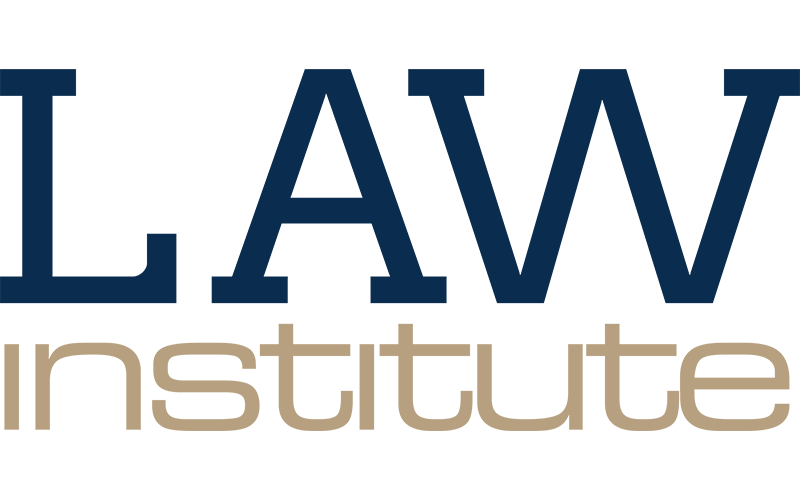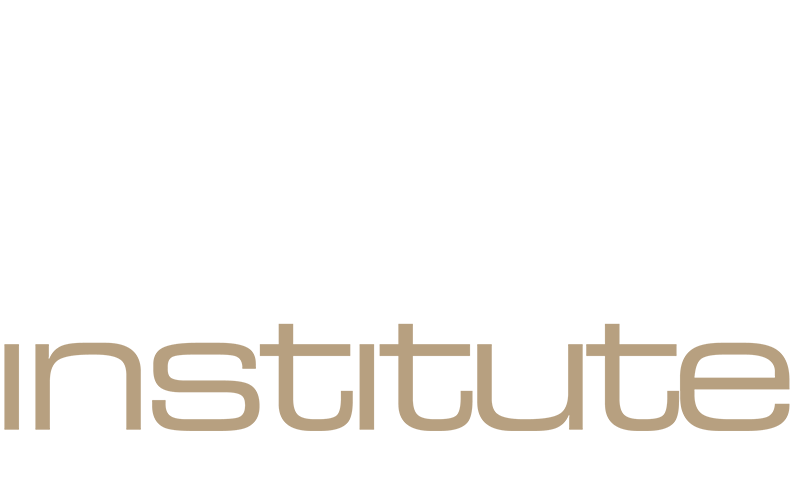Law Education
Swiss Made with Accreditation



The Law Institute is proud to be a member of SIMI Swiss
The Law Institute of Switzerland adopts the comprehensive accreditation system of SIMI Swiss and implements both Internal Quality Assurance (IQA) and External Quality Assurance (EQA) processes, ensuring the highest quality and continuous improvement in every lecture.
 Institutional accreditation
Institutional accreditation
At the institutional level, accredited by ASIC UK, HEAD Germany, and ISO 21001:2018
 Programmatic accreditation
Programmatic accreditation
The program is recognized by Ofqual UK.Gov awarding bodies such as OTHM, Qualifi, and ATHE
 Stage-by-stage recognition
Stage-by-stage recognition
At each stage, students receive a certificate, enabling them to work immediately without waiting for program completion
 Mutual recognition by partners
Mutual recognition by partners
After graduation, SIMI Swiss partners with universities for joint recognition and degree issuance, optimizing career opportunities.
We offer fully accredited, Swiss-made law education solutions
Enhance the value of your law program
The Essence of SIMI Academic Programs
The Swiss Information and Management Institute (SIMI Swiss) is a globally recognized and acclaimed private higher education institution, holding independent and private international accreditation at the institutional, school, and program levels.
SIMI Swiss is licensed by the Zug Canton authority as a private institution. Being a private institution in Switzerland, SIMI Swiss issues private qualifications. Not being part of Switzerland’s federal and public higher education sector, it operates independently and is not regulated under the Federal Act of 30 September 2011 on the Funding and Coordination of the Higher Education Sector (HEdA), SR 414.11.
Our higher education programs differ from the Swiss National Curricula and programs leading to Swiss Government university qualifications and federally regulated qualifications in Switzerland.
SIMI Swiss is a private, globally accredited higher education institute in Switzerland and is not affiliated with the Swiss public education system or the Swiss government. The qualification issued by SIMI Swiss is a Private qualification, distinct from federal degrees or degrees awarded by public universities in Switzerland.
Law Institute of Switzwerland delivery method
With the aim of becoming a leading private higher education institute in training based on the Hybrid learning model (a combination of Live Class and local tutoring), Law Institute of Switzerland implements the training model:
- For international students in countries without SIMI Swiss partners or campuses: Students will engage in online learning with Live Class sessions directly led by SIMI Swiss instructors.
- For students in countries with partners or campuses recognized by SIMI Swiss, learners will participate in Live Class sessions with SIMI Swiss instructors, concurrently engaging in local support activities facilitated by the partner.
Please be aware that local partners provide support but do not have the authority to determine alternative study outcomes with SIMI Swiss. The sole discretion to decide on academic results rests with SIMI Swiss and partner universities involved in the assessment and diploma awarding process.
What is accreditation?
Accreditation serves as a rigorous quality assurance process, verifying that colleges, universities, and educational institutions, along with their programs, adhere to stringent and recognized service and operational standards. Acquiring an accredited degree is crucial for attaining the career success you rightfully deserve.
Through this process, external agencies assess a school’s programs, guaranteeing adherence to relevant academic standards. Lack of accreditation makes it difficult for employers to ascertain the legitimacy and reputation of your diploma or degree, emphasizing the importance of this recognition from reputable institutions.
What does institutional-level accreditation at SIMI Swiss entail?
Institutional accreditation essentially grants a license to operate, gauging compliance with predetermined standards like staff qualifications, research activities, student intake, and learning resources. It also considers the institution’s potential to produce graduates meeting academic and professional competence standards (source: “The Power of Accreditation: Views of Academics” by Professor Lee Harvey, Centre for Research and Evaluation, Sheffield Hallam University, ENQA Workshop Reports, 2004).
With official approval, students at the Swiss Information and Management Institute (SIMI Swiss) can trust the institution’s compliance with commercial quality and integrity standards. Licensed by the Zug Canton authority, SIMI Swiss is fully accredited by independent global accrediting bodies.
What does program-level accreditation mean at SIMI Swiss?
Program or programmatic accreditation, also referred to as specialized or professional accreditation, is tailored for specific departments, programs, schools, or colleges within an already accredited university or institute.
At SIMI Swiss, we excel in adhering to international higher education standards. As a reputable and globally acclaimed Private Institute of Higher Education, we have secured accreditation at the institutional, school, and program levels. All our academic programs align seamlessly with the European Qualifications Framework (EQF), ensuring that every SIMI Swiss program and qualification receives greater recognition in the labor market, guaranteeing our graduates open access to employment and lifelong learning.
What does accreditation and mutual recognition entail for SIMI's strategic partners?
SIMI Swiss engages in close collaboration with meticulously chosen partner universities globally. The aim is to accredit and mutually recognize degrees offered by these strategic partners. This collaboration proves advantageous for SIMI students, potentially enabling them to attain multiple academic credentials simultaneously.
What advantages do learners gain from the accreditation and mutual recognition of SIMI's strategic partners?
- Attaining Multiple International Credentials;
- Flexibility in Choosing Learning Methods and Locations;
- Recognition of Prior Learning;
- International Acknowledgment of Learning, including the United Kingdom (SIMI Swiss programs are fully recognized and endorsed by OTHM and many Ofqual UK.Gov Awarding Bodies which are accredited by Ofqual), the European Union, Asia, South Africa, and Australia, facilitated through mutual recognition via the National Qualification Framework (NQF);
- Potential to Earn a Diploma or Qualification for Each Academic Year, enabling students to secure employment right after completing the first year with SIMI Swiss.
What advantages do Employers gain from the accreditation and mutual recognition of strategic partners?
- Assurance that the curriculum encompasses essential skills and knowledge required for contemporary jobs;
- Clear identification of the professional and academic level of candidates/employees;
- Candidates/Employees with practical orientation and exposure to career-based training and assessment;
- Industry-ready candidates/employees demonstrating high levels of productivity and fitness for the intended purpose.
Private Degree of Swiss HEIs
In Switzerland, private degrees are academic qualifications awarded by private institutions, distinct from those conferred by public universities. These private institutions offer diverse programs and degrees, often designed to cater to specific industry demands and individual student preferences. Operating independently from government regulations, private institutions enjoy greater flexibility in their curricula and teaching methods.
Students often choose private degrees for their specialized education, smaller class sizes, and personalized learning experiences. These institutions frequently partner with industry leaders, providing students with practical skills and valuable networking opportunities that enhance their employability.
It is crucial for prospective students to carefully assess the accreditation and recognition of private degrees, as they can vary significantly. Ensuring that the qualifications are recognized by employers and other educational institutions is essential.
A notable example of a private institution evolving within the Swiss private education system is SIMI Swiss. Before gaining university federal status under the Swiss University Plan 2027, SIMI Swiss exclusively awarded private degrees. This transition highlights the dynamic nature of higher education in Switzerland, where private institutions can achieve greater recognition and integration into the national education framework.
The State Secretariat for Education, Research, and Innovation (SERI) in Switzerland has provided important guidelines and clarifications regarding private degrees awarded by private institutions.
Based on these regulations, private institutions in Switzerland operate independently of the public university system, legally offering a range of academic programs and qualifications (bachelor, master, doctorate). The recognition of these degrees depends on international accreditation and acceptance by receiving institutions, due to the independent and flexible nature of the private higher education system. This system is designed to meet the needs of the working environment and promote internationalization.
Understand the effectiveness of the multi-award system of SIMI Swiss and why it matters
The dual degree system leverages the advantages of programs from a Private HEI and Private Degree while reducing the disadvantages inherent to the nature of a Private Degree.
As a private higher education institute, SIMI Swiss have full right and legal offers and awards private degrees from Bachelor’s to Doctorate levels. Although private degrees allow for flexible programs that can be taught in multiple languages, including English, they also have certain limitations due to their nature.
Therefore, to help students take advantage of the benefits of a private degree while addressing its limitations—especially for those entering regulated professions or the public sector—SIMI Swiss offers programs that are recognized by partner universities for joint degree awards.
The advantages of the dual degree system:
- Taking advantage of flexibility, quickly adapting to learners’ needs and job market requirements, the programs from private higher education institutions like SIMI Swiss offer Private Degrees.
- Minimizing the disadvantages of Private Degrees in recognition and employment within fields classified as Regulated Professions.
- The second degree helps students optimize the use of their qualifications in various circumstances.
Note: The recognition of a degree depends on various regulations of each country and receiving institution. Please check the information before enrolling with SIMI Swiss and refer to the disclaimer section here for more details.
Regulated and non-regulated professions in Switzerland
Understanding the distinction between regulated and non-regulated professions in Switzerland is essential for career planning and navigating the job market. Regulated professions require specific qualifications and certifications, ensuring high standards and public trust. Non-regulated professions offer more flexibility and varied pathways, emphasizing practical skills and experience.
In Switzerland, professions can be broadly categorized into regulated and non-regulated professions. Understanding the difference between these two categories is crucial for both Swiss citizens and international professionals aiming to work in Switzerland.
Regulated Professions:
Definition:
- Regulated professions are those that require specific qualifications and certifications by law to practice. These professions are often subject to oversight by professional bodies or government agencies.
Examples:
- Healthcare: Doctors, nurses, pharmacists, and other healthcare professionals must meet stringent educational and certification requirements.
- Law: Lawyers and notaries must be admitted to the bar and fulfill specific educational criteria.
- Engineering and Architecture: Certain engineering disciplines and architecture require accreditation from recognized professional bodies.
- Finance: Some financial roles, such as auditors and accountants, may require certification from recognized institutions.
Requirements:
- Qualifications: Specific academic degrees, professional training, and sometimes additional exams.
- Certification: Registration with a professional body and compliance with ongoing professional development requirements.
- Licensing: Official licenses to practice, often requiring renewal.
Non-Regulated Professions:
Definition:
- Non-regulated professions do not have legal restrictions on who can practice. While qualifications can enhance employability, they are not legally mandated.
Examples:
- Managers: Managers play a crucial role in the success and efficiency of organizations like CEO, HRM…
- Journalists: Their roles are multifaceted and encompass various responsibilities that ensure the delivery of accurate, unbiased, and timely information
- Information Technology: Roles such as software developers, IT consultants, and network administrators.
- Marketing and Sales: Marketing specialists, sales representatives, and business development professionals.
- Creative Industries: Graphic designers, artists, writers, and media professionals.
- Hospitality and Tourism: Hotel management, tour operators, and restaurant management.
Requirements:
- Qualifications: While not legally required, relevant academic degrees and professional certifications can improve job prospects.
- Experience: Practical experience and a proven track record are often highly valued.
- Skills: Specific skills and competencies relevant to the industry.
Key Differences:
Legal Requirements:
- Regulated: Legally mandated qualifications and certifications.
- Non-regulated: No legal restrictions, though qualifications can enhance employability.
Oversight:
- Regulated: Subject to oversight by professional bodies and government agencies.
- Non-regulated: No formal oversight, though industry standards and employer preferences apply.
Mobility and Recognition:
- Regulated: International qualifications may require recognition and equivalence assessments.
- Non-regulated: More flexibility, with qualifications and experience often being transferable.
Programs at SIMI Swiss lead to non-regulated professions:
- As a private higher institute in Zug, Switzerland, SIMI Swiss offers single-degree programs (degrees awarded only by SIMI) in the field of non-regulated professions.
- These non-regulated profession programs enable graduates to work in fields such as management, CEO, human resources director, and principal (director of an educational institution).
Programs of SIMI Swiss lead to regulated professions:
SIMI Swiss only offers programs leading to regulated professions in collaboration with another university.
Through the dual degree system and mutual recognition of results from partner universities, students receive dual degrees. With the second degree from the partner university, students can expand their eligibility for regulated professional fields (if required).
References:
- SERI – Regulated Professional Activities and Fact Sheets
- List of regulated professional activities in Switzerland
Note: Determining whether a field is regulated or non-regulated depends on many factors and the regulations of each country. Please check the information before deciding to join SIMI Swiss. Learners also need to read our disclaimer for more information.
Accreditation
Mutual Recognized
Academic Support
Levels

Want to Be the Next Law Expert?
A noble career with great prospects, made even more effective with the legal training system from Switzerland and the United Kingdom

